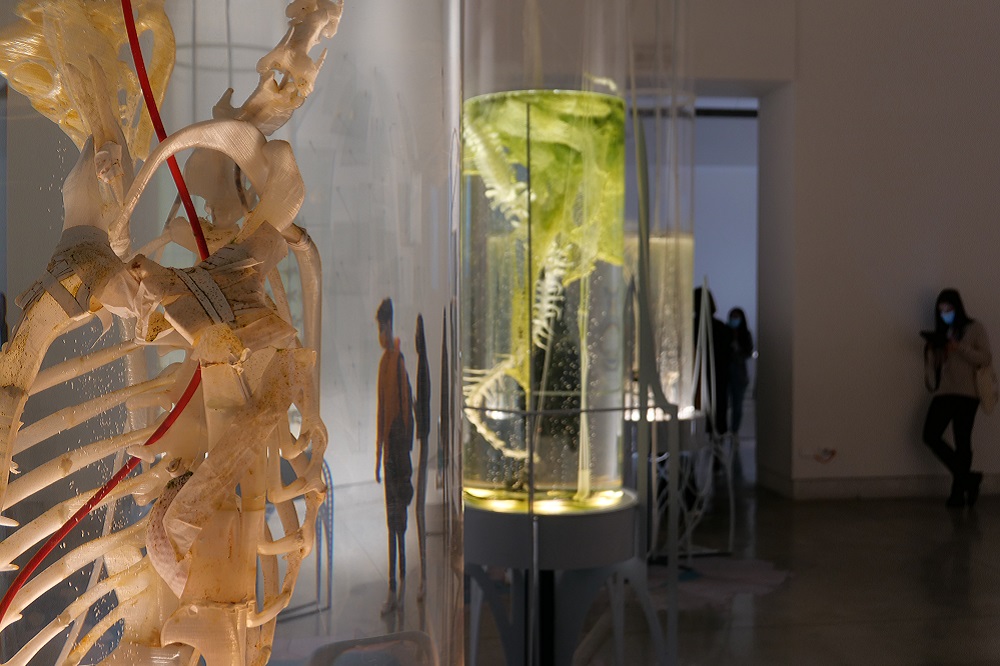The 17th International Architecture Exhibition – the entire series, including the art section, is known as La Biennale di Venezia – ran from 22 May to 21 November 2021, with the Salon Suisse curated by architect and publicist Evelyn Steiner. On 18 November 2021, the event “Jethro Knights, Armor Guyver, and Mutant X: How transhumanists challenge architecture” took place. Prof. Dr. Oliver Bendel gave a talk on “Human and animal enhancement in the context of architecture”, followed by a discussion with Mike Schaffner (a Swiss cyborg) and Prof. Dr. Georg Vrachliotis (an architect at TU Delft). First, the information and machine ethicist clarified key terms such as “human enhancement”, “animal enhancement”, “biohacking”, “bodyhacking”, “cyborg”, and “transhumanism”. He also brought in his own terms “robot enhancement” and “reversed cyborg” or “inverted cyborg”. He then presented examples of human enhancement and animal enhancement, including in the context of architecture: cats with chips getting into the house, humans with chips bringing the smart home to adaptations, animals and humans with chips and transmitters detected in time in traffic, and enhanced and improved organisms that can live on alien planets. He concluded by offering ethical considerations. He was open to the idea of cyborgs and critical of the transhumanism movement. The booklet on Salon Suisse is available here.
Jethro Knights in Venice
The Salon Suisse at the 17th International Architecture Exhibition in Venice presents its program under the title “Bodily Encounters”. Salonnière is Evelyn Steiner, under assistance of Viviane Ehrensberger. “Bodily Encounters revolves around the fundamental Relationships between the body and architecture: when space is being experienced, the body serves as the most important system of orientation and measurement.” (Booklet Salon Suisse) On November 18, 2021, Palazzo Trevisan will host the event “JETHRO KNIGHTS, ARMOR GUYVER, AND MUTANT X: HOW TRANSHUMANISTS CHALLENGE ARCHITECTURE”. In the booklet you can read: “Body hacking means invasive or non-invasive intervention in the human body for the purposes of human enhancement or transhumanism. Implanted chips and technical enhancements, for instance, enable the human senses to be extended or purposefully controlled. This evening, the focus is on physical and mental transformation and its impact on architecture. How does architecture respond to members of the human species who take the course of evolution into their own hands? For example, the human sensorium could be adapted to external influences and optimised in such a way that construction in compliance with noise regulations or adherence to climate-related requirements and disability standards would become obsolete. After an introduction to transhumanism by Professor of Information Ethics and Machine Ethics Oliver Bendel, Georg Vrachliotis, Professor of Architectural Theory, and the body hacker Mike Schaffner, will discuss various scenarios and leave room for some surprises.” (Booklet Salon Suisse) You can download the booklet with further information about the Salon Suisse program here.

